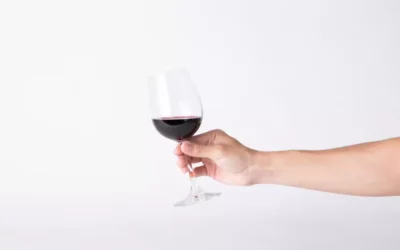Alcohol and Sleep
Content
These can happen during arousals from rapid eye movement (REM) sleep or non-rapid eye movement (NREM) sleep. Alcohol can have a sedative or stimulant effect depending on the dose and the time between drinking and bedtime. Some people who drink frequently develop a tolerance to the sedative effects of alcohol. This article reviews the relationship between alcohol and insomnia, including how alcohol can affect sleep quality alongside the risks of poor sleep quality.

Because on top of sleep disturbances, you can also experience anxiety, shakiness, headaches, brain fog, and a range of other detox symptoms. You may be wondering what it is about alcohol that makes you feel sleepy, especially if you’re also experiencing adverse symptoms of insomnia. Alcohol depresses your central nervous system, which means your brain activity, breathing, and heart rate all slow down when you’re intoxicated. For example, those who are sensitive to alcohol might get a rough night of sleep after only one or two cocktails. At any rate, a regular nighttime drinking habit will increase your odds of poor-quality sleep over time. Research on alcohol and sleep shows that moderate-to-heavy drinking has a detrimental effect on sleep.
How does alcohol affect sleep quality?
Chronotype can be conceptualized as being categorical (“morning”, “evening”, and “indeterminate” or “neither” types) or dimensional (ranging from extreme morningness to extreme evenigness) in nature. The “evening” type (greater eveningness) individual prefers a later bedtime and a later rise time and has a greater need for sleep. This chronotype is commonly seen in adolescents and those with psychiatric disorders. Conversely, the “morning” type individual (greater morningness) prefers an earlier bedtime and an earlier rise time. Moreover, chronotype is a dynamic trait that changes across the lifespan. As children grow older and approach adolescence, many of them may experience a shift towards eveningness, a phenomenon seen commonly in boys [11].

Despite non-pharmacological interventions, many alcoholic patients continue to have sleep problems and request pharmacotherapy. Many agents previously used for insomnia are relatively contraindicated alcohol insomnia because of their interaction with alcohol. Alcohol potentiates the effects of barbiturates and chloral hydrate, which are almost never clinically indicated for insomnia among alcoholics.
Alcohol and Sleep
Research shows that alcohol consumed within an hour of bedtime will disrupt sleep in the second half of the sleep period, causing the person to sleep fitfully—awakening from dreams and not being able to get back to sleep easily. We also know that excessive daytime https://ecosoberhouse.com/ sleepiness, resulting from a lack of sleep, is linked to impaired social and occupational function, memory deficits, and risk of having a vehicle crash. Research shows that between 33% and 40% of people who consume alcohol experience mild to severe anxiety.
- When people in America notice they’ve developed issues falling asleep, their first reaction is often to have a drink.
- Sleep disturbance has been shown to predict subsequent alcohol consumption in adolescents and adults (Breslau et al., 1996, Wong et al., 2004, Wong et al., 2010, Wong et al., 2015, Ford and Kamerow, 1989, Weissman et al., 1997).
- Lack of standard definitions and measurements of both insomnia and alcohol use render uncertain the magnitude of any association.
- Research on alcohol and sleep shows that moderate-to-heavy drinking has a detrimental effect on sleep.
Small amounts of alcohol may cause short-term sleep disturbances, but frequent and large quantities of alcohol consumption may lead to chronic insomnia for certain individuals. We rated self-reported worry severity with the abbreviated Penn State Worry Questionnaire (PSWQ-A), an 8-item inventory derived from the original 16-item PSWQ (27). The PSWQ-A is useful for identifying GAD in older primary care patients (33) and demonstrates change following treatment (34).
How does alcohol affect people with insomnia?
Briefer periods of sleep disturbance are most often stress-related or due to acute illness (4). Substance use problems underlie approximately 10–15% of chronic insomnia (7). Of adult Americans, as many as 70% drink alcohol, and half of these experience an alcohol-related problem at some point in their lives.
In summary, moderate doses of alcohol may decrease the amount of REM sleep through the night. In doses mimicking heavy drinking, alcohol may initially improve sleep continuity during the first half of the night. But in the second half of the night, it may lead to fragmented sleep (more awakenings). Further, alcohol may continue to disturb sleep even after the breath alcohol concentration is undetectable.




Leave a Reply